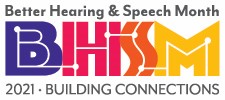
Speech-language pathologists can help patients regain health and quality of life.
An estimated 10 to 30% of COVID-19 survivors experience “long-haul” symptoms including brain fog, hoarseness, and swallowing difficulties. These symptoms can affect return to work, the ability to take care of one’s family, and overall recovery. Many people don’t know about the services of speech-language pathologists—professionals trained in these areas who can make a huge difference for these people by improving their functioning and quality of life.
How They Help
Speech-language pathologists, SLPs, can help people who have or are recovering from COVID-19 and are having short- and longer-term difficulties in the following areas:
Cognition or brain fog issues
Many COVID-19 “long-haulers” are reporting persistent brain fog, or trouble thinking clearly, as a debilitating symptom after their bout with the virus. This can prevent a return to work and impact their ability to tend to family responsibilities. SLPs can work with people to improve their memory, attention, organization and planning, problem solving, and learning. The focus is on the person’s specific challenges, as well as regaining the skills most important to their daily life and priorities.
Voice
Voice problems can result from the natural course of the virus such as inflammation of the upper respiratory tract, including the vocal cords or irritation to the vocal cords due to a lot of coughing. Spending a long time on a ventilator (breathing tube through the vocal cords) can also damage the vocal cords and cause voice problems. Some experts also have found that COVID-19 can impair the vagus nerve; this may cause problems with vocal cord movements resulting in shortness of breath. SLPs can help with proper use of the vocal cords to improve voice production and/or breathing.
Swallowing
People diagnosed with COVID-19 may have swallowing problems putting them at risk for choking or aspirating, which is when food goes into the lungs instead of the stomach. This may be from spending time on a ventilator, or it may be another side effect of the virus. Using different tests to find out what happens when a person swallows and how the related muscles are working, SLPs can help find the patient and family find the best course of action.
Communication
People diagnosed with COVID-19 may also experience speech and language difficulties. Some who have spent large amount of time on a ventilator or experienced low oxygen to the brain, may have a hard time talking because of muscle weakness or reduced coordination in the muscles of the face, lips, tongue and throat. Others, particularly those who had a COVID-related stroke, may experience a language disorder called aphasia—which makes it hard for someone to understand, speak, read or write. SLPs work with patients through targeted therapy to improve their communication and understanding.
Where to Find Care
If you or a loved one are experiencing ongoing issues with communication, thinking skills, voice or swallowing, please talk with your provider. A speech-language pathologist may be able to help. For more information about speech-language therapy services, visit valleymed.org/rehab or call 425.690.3650


